Good things are bound to happen (food-wise, at least) for a country situated in the middle of some of the oldest major culinary influences.
Chalk Albania up as one of those countries, and for certain dishes – tave kosi included – the history of the dish is as rich as the taste itself.

Tave Kosi: Embodying a “Melting Pot” Cuisine
To understand a little more about what Albanian cuisine and dishes like tave kosi really are, we’ll start with its culmination of influencing cuisines.
Geopolitically speaking, the relatively small land that makes up Albania has long been in, relative to its influentially behemoth neighbors, what you might call a “precarious” position.
Sandwiched between ancient superpowers like the Greeks, the Romans, the Ottomans and many more in between, Albania’s history since its Illyrian epoch is littered with periods of occupied and colonized rule at the hand of others. Save for a few centuries of a self-established Kingdom of Albania, the country has strong ties to many of the great empires of its time.
As a result of being “passed around” from one Empire to the next, there have been many different (strong) influences on overall Albanian cuisine, particularly those with a Mediterranean flair. With the ancient Greeks came the olive and abundant use of olive oil. From the Romans came the increased use of fresh like oregano, mint, basil and others common in the Mediterranean diet.
Then, of course, there is profound Turkish imprints on Albanian food as well. Thanks to a strong Ottoman presence from the late 15th century up until the early 20th, Albanian customs adjusted according to the Islamic constraints and traditions of its occupying rulers. Lamb, for example, became the staple meat in the cuisine in lieu of forbidden pork, and Turkish dishes like borek or dolma and sweets like baklava are equally popular in Albania as they are in Turkey.
Nevertheless, despite all the influences, Albanian cuisine still relies very much on what’s locally available within national borders. A fertile climate, very favorable soil and neighboring coastlines to the Adriatic Sea have given the country a built-in advantage vis-a-vis the quality and diversity of ingredients available to the cuisine. Even as a “melting pot” of influences, local Albanian dishes – especially those made with the freshest of local ingredients – are still very distinguishable from the rest.
You might also like….
If you love lamb you might want to check out our other recipe on a slow cooked gluten free lamb stew from Pakistan (nihari), or our roasted lamb recipe with yogurt and flatbread recipe from scratch.
If you just love this type of yogurt sauce, you might enjoy our other recipe on a braised beef loin with sour cream sauce from Austria.
The Advent of Tave Kosi
Unfortunately, as part of a history with repeated conquests and influences, the principles of Albanian cuisine have continuously been challenged, and in some cases, the outcome has not always been too favorable.
The advent – or at least the popularization – of tave kosi actually stems from an attack on Albanian lands. During the mid-15th century, following an unsuccessful second siege attempt on the Albanian then-capital of Kruje, Ottoman ruler Mehmed II built a military encampment for his sieging army in an abandoned territory in the heart of Albania as he prepared for the next round of attacks. This military camp eventually became the city of Elbasan, which would eventually develop into an important hub of economic and cultural activity during Ottoman rule in later centuries.
While occupying Elbasan, Mehmed enjoyed in particular one casserole-style dish made of lamb and kos, a type of yogurt made from either goat or ewe’s milk. The ubiquity of the recipe eventually spread, and soon tave kosi – also known as tave elbasani, or the “casserole of Elbasan” – became the unofficial national dish of Albania and even back into Turkey and other major parts of the Ottoman Empire.
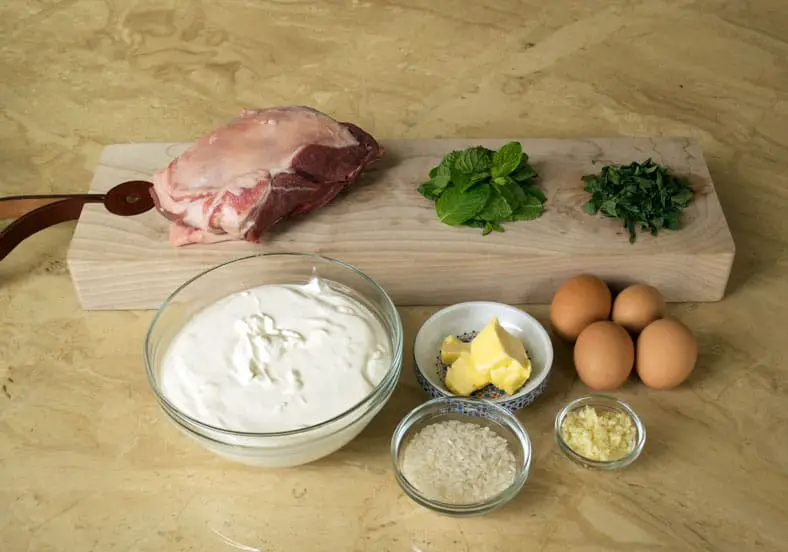
About the Recipe
The essence of preparing tave kosi lies in its (translated) name. The word tave in Albanian translates into English as “casserole,” and we mentioned earlier that kos refers to the yogurt made from goat’s or ewe’s milk. Therefore, tave kosi is a yogurt-based casserole dish.
Beyond that, there are a few additional base ingredients needed for a true tave kosi: eggs, meat and a little bit of rice. Every meal in Albania requires at least one meat and some fresh vegetables, and tave kosi easily covers the meaty requirement. From there, additional aromatic (and typically Mediterranean) ingredients like garlic, oregano and other herbs can be added as well.
In order to have the lamb meat turn out incredibly soft in your tave kosi, it’s common to pre-cook the meat before submerging it in the yogurt and creating your casserole. You’ll therefore start by either pre-grilling or pre-baking your lamb for at least 30-45 minutes before removing and putting at the bottom of your greased casserole dish. An added benefit of this pre-baking is that you end up with some delicious juices from the lamb that can go into other components of your tave kosi.
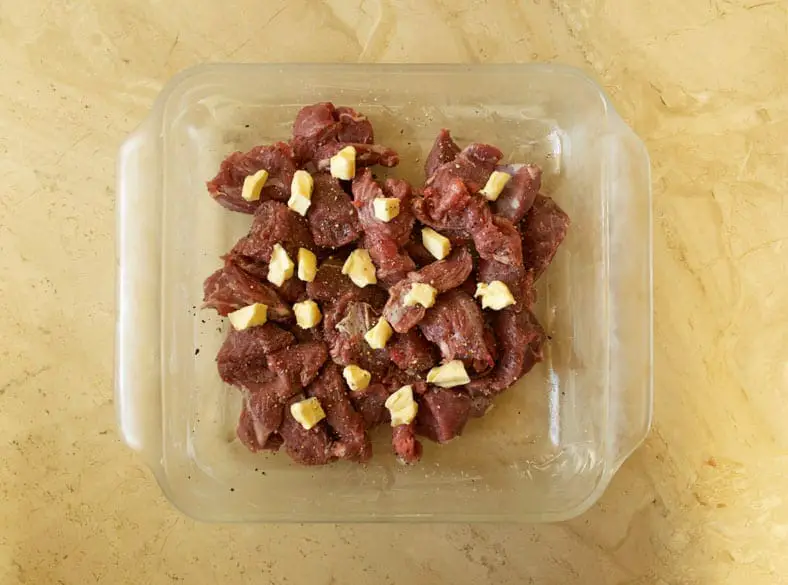
As the lamb is pre-baking, you have the option of also pre-cooking some rice and ensuring that it will come out soft in the final presentation. It’s not a requirement to do so, but you might find some versions of tave kosi where the rice is pre-cooked and some versions where the rice cooks from the beginning in the yogurt sauce.
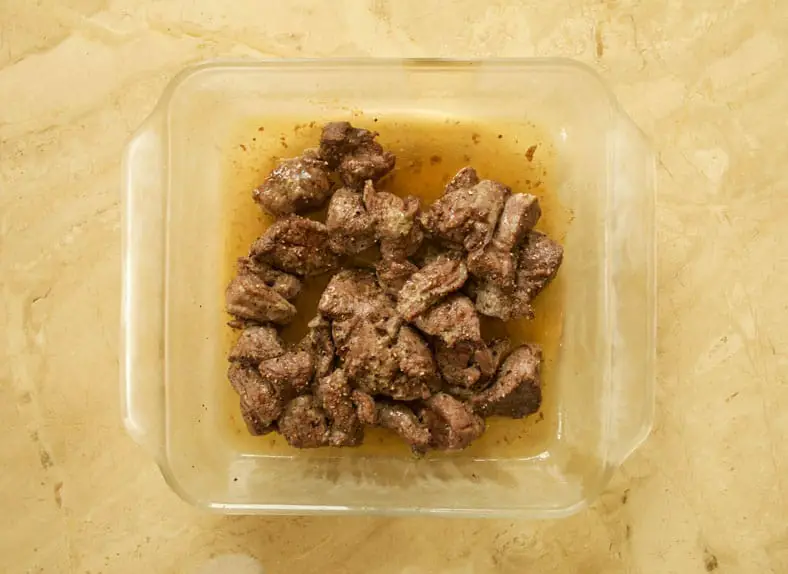
Once you have your lamb juices intact, however, it’s all eyes and ears on creating the yogurt sauce. The first step is to creating a sort of roux. Using a bit of flour and an animal fat like butter, you create a thickened paste into which you’ll fold in your lamb juices and then a last touch of flour to re-thicken the entire mixture. This roux is then cooled down and folded into a mixture of yogurt and eggs, as well as other ingredients added, in order to create a wholesome flavored sauce that is the true essence of your tave kosi.
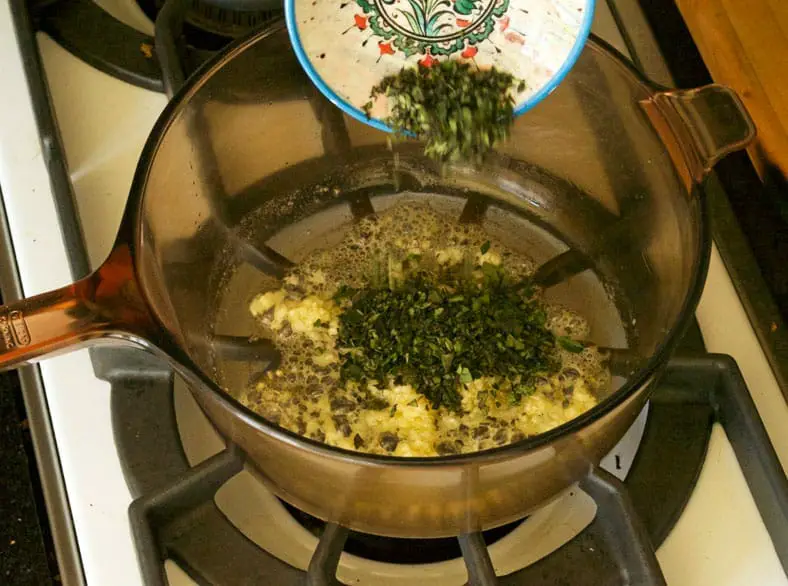
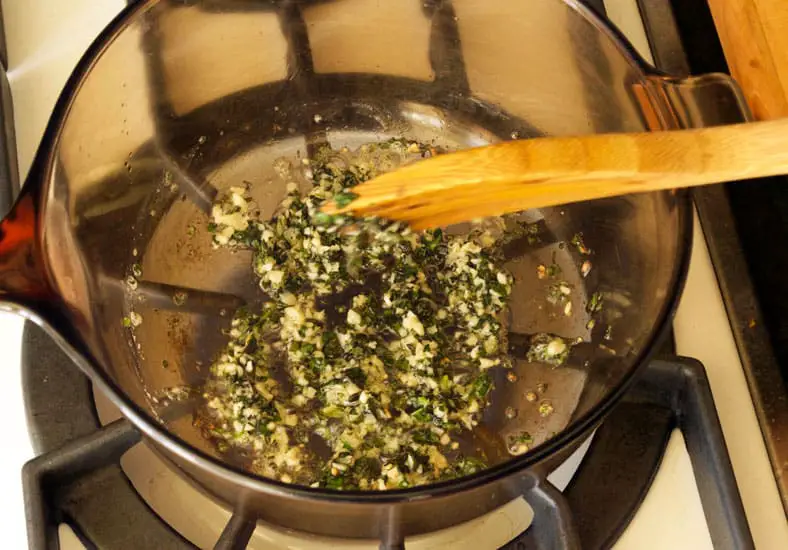
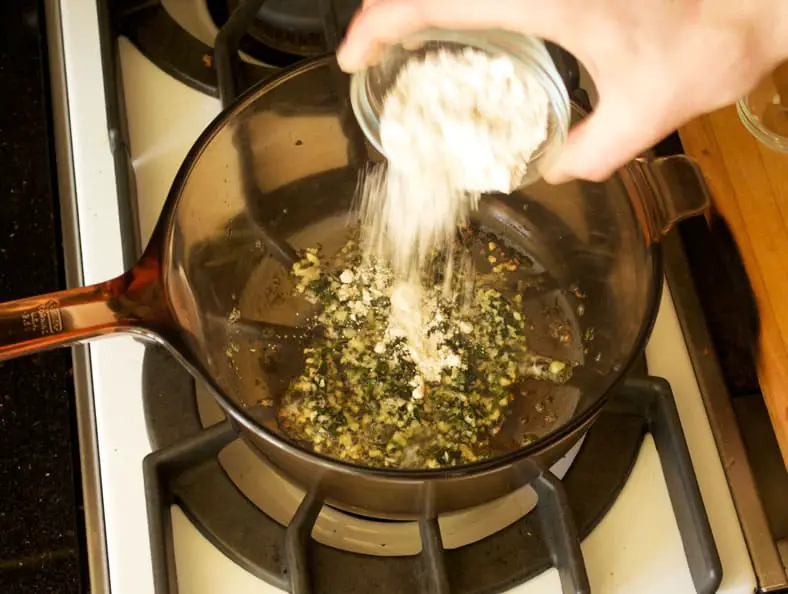
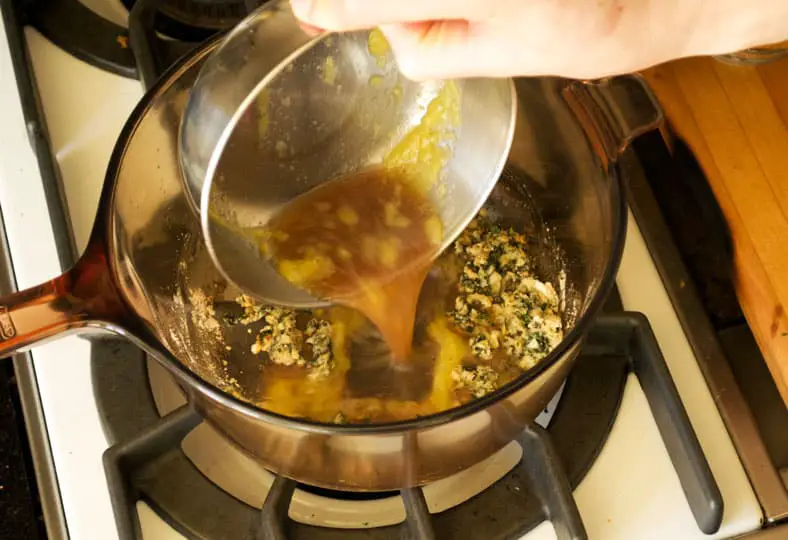
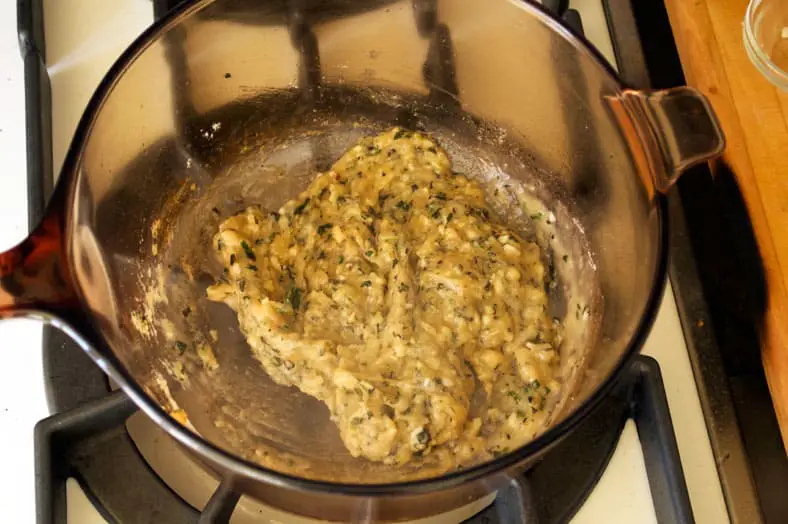
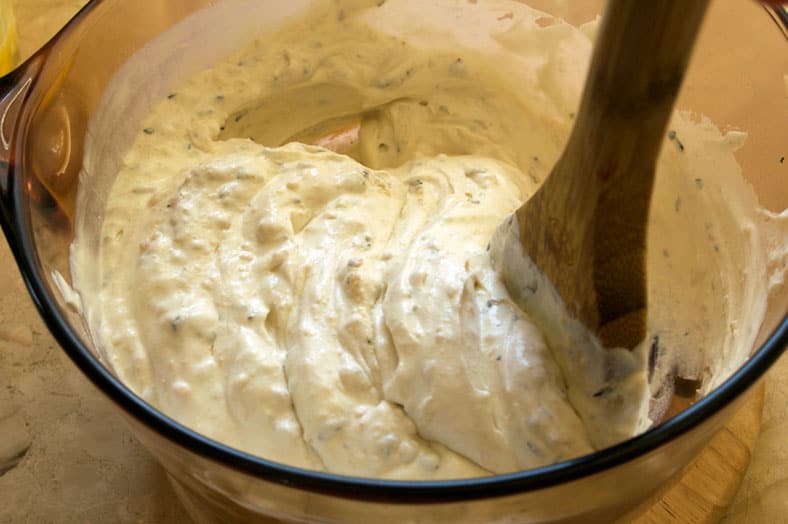
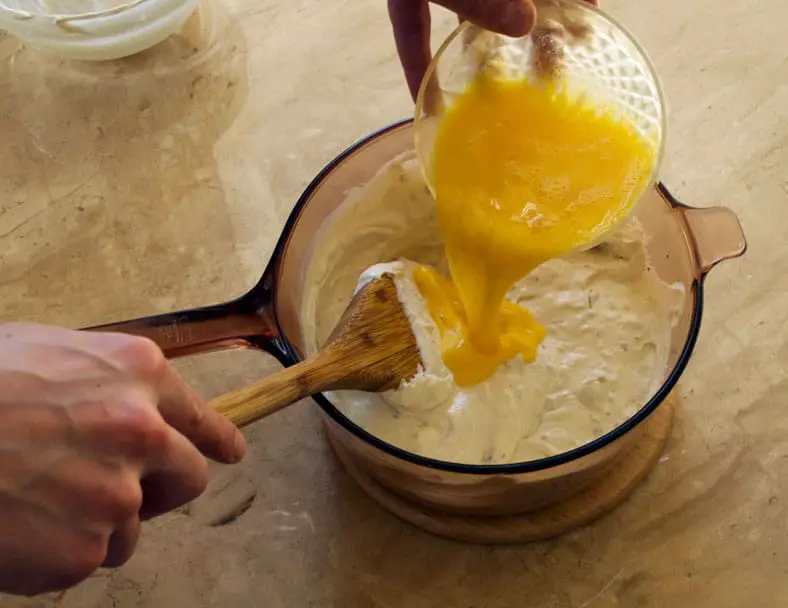
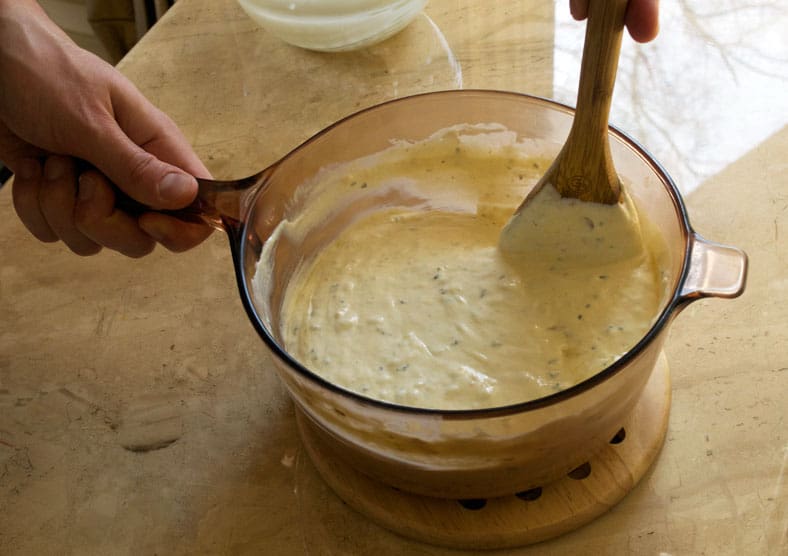
Once the sauce is complete, you sprinkle the rice over the lamb meat in a casserole dish before submerging it all in the yogurt sauce. On top of the casserole, you might want to add a few errant pieces of butter to create a golden upper crust, but that’s completely up to you. You then pop the tave kosi in the oven and let bake uncovered for ~45 minutes, during which time the eggs folded into the yogurt thicken the entire sauce and create a quiche-like texture to the dish. The tave kosi that comes out in the end is thus a decadent, flavorful yet still very healthy dish.
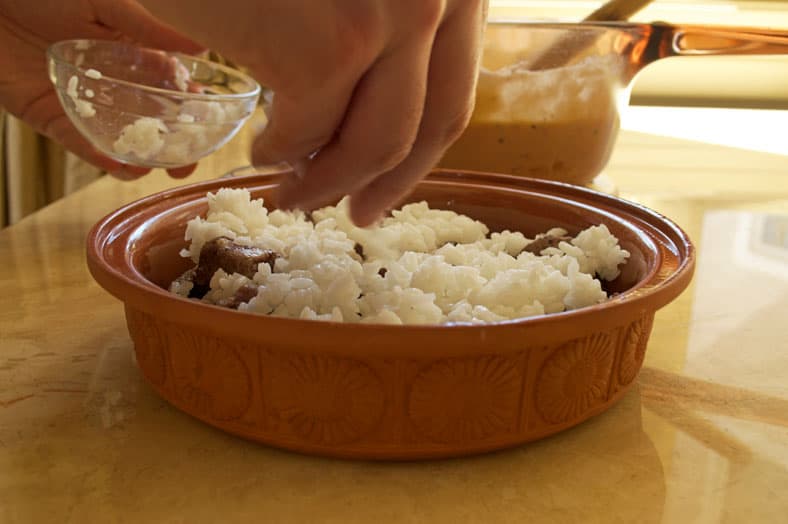
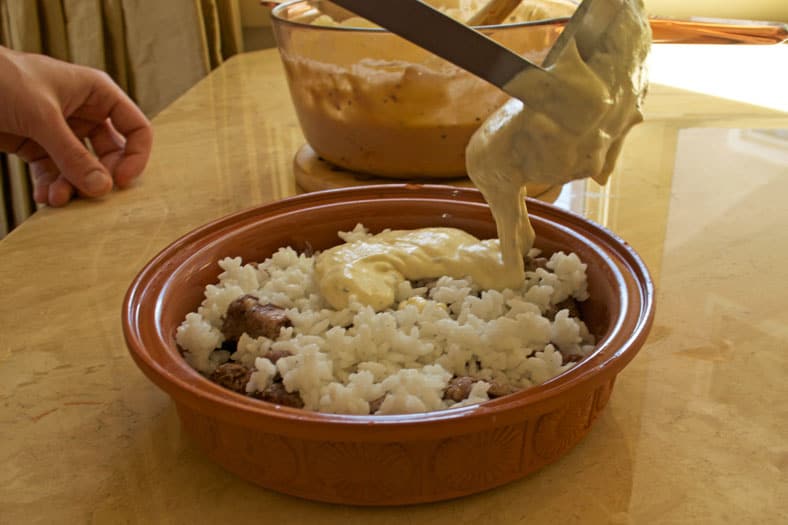
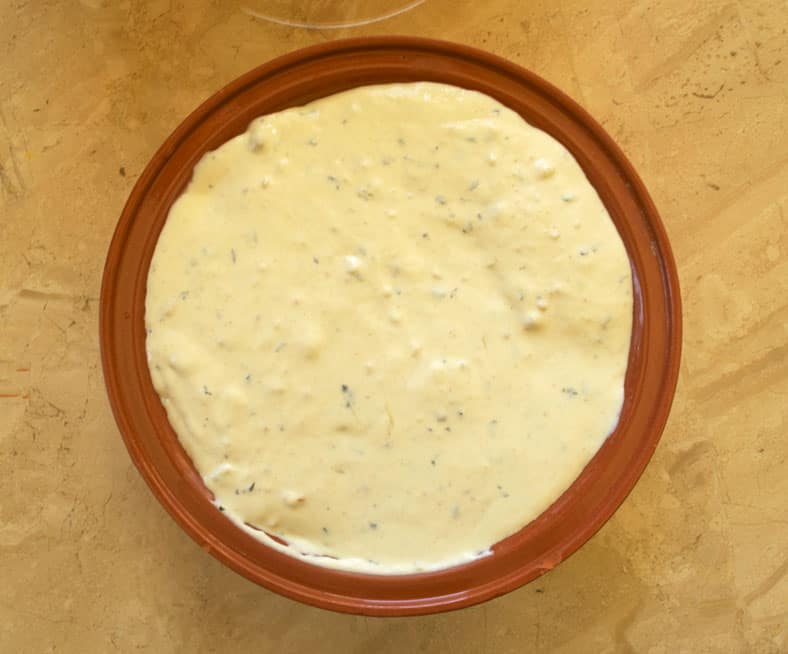
Our Take on the Recipe
Given that tave kosi is considered the national dish of Albania, it was surprising how deficient and seemingly undeveloped the recipes that we came across were for this dish. Nevertheless, we tried to make do with what we could and based our own version of tave kosi on this original reference recipe.
Piecing together what we could from other recipes as well, we did make some substantive changes to our version of tave kosi.
In the absence of reliable and authentic kos, we opted to use full-fat Greek yogurt as the base for this recipe. We also swapped out the corn starch used in the root recipe for some unbleach pastry flour as well.
Perhaps the most drastic change came in our preparation of the roux. In what might be a fairly “radical” move, we actually added our aromatic ingredients of garlic, oregano and nutmeg into the butter and base of the roux as opposed to folding it in with the yogurt and eggs. The heat and cooking together gave these ingredients and flavors an opportunity to meld a bit more than, by contrast, going in relatively cold into the oven, which is why we chose to make that change.
Then, in what you might call a pseudo-homage to the Italian influence on the Albanian cuisine, we used an arborio rice – the type of rice you’d use for risotto – in our tave kosi. We pre-boiled our rice for a halfway al dente level of doneness before placing it in the oven, and we were definitely pleased with the texture and consistency of the rice in the final tave kosi. But again, this decision to pre-cook your rice is totally up to you and is an optional move.
Another thing we did differently is that we pre-beat our eggs prior to mixing them in with the yogurt and our roux. Most recipes we saw cracked the eggs directly into the yogurt, but we wanted to opt for a more even spread of the eggs throughout the yogurt by ensuring that they were well-beaten ahead of time. We like to think this had an impact on the evenness of texture and flavor, but that’s more our hunch than anything else.
Finally, for garnishing, we topped our tave kosi off with little pieces of butter over the top of the casserole before placing it in the oven. Most of the recipes we found did this exact same thing and for very good reason: the golden brown color that develops on top is so aesthetically pleasing. When the entire tave kosi was done baking and cooling, we did sprinkle finely chopped mint over top on the principle that mint and lamb go well together. It turned out to be a good call.
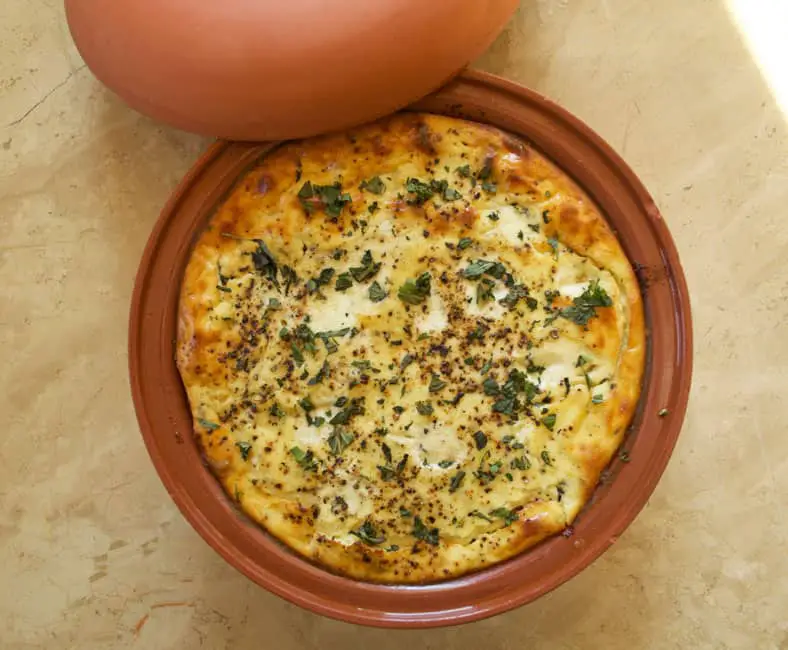
Even with the slightly complicating adjustments we made, the tave kosi was still very amazingly simple to make, and the end result is so worth it. Especially on a beautiful spring day with an accompanying fresh salad, you have a mealtime that will be truly hard to beat.
Enjoy!
How did you prepare your tave kosi? Comment below!
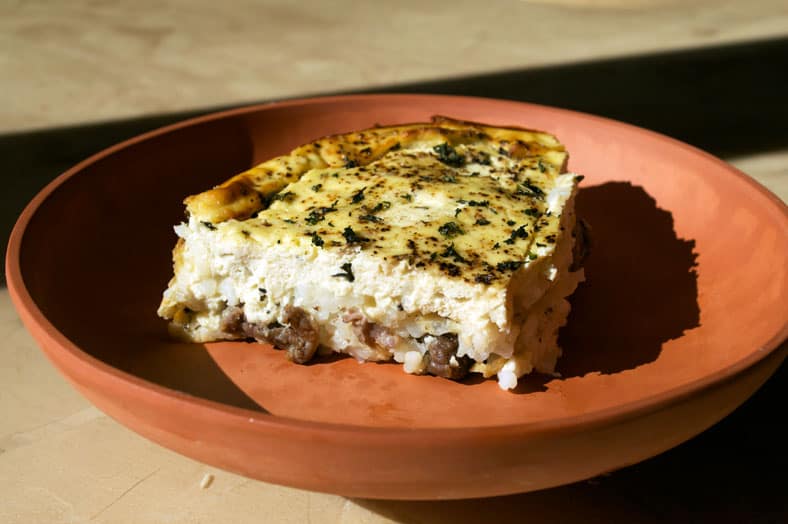

This looks amazing!! We love lamb and are always looking for new ways to prepare it. I just love all of the flavors in this dish!
That’s awesome, Gwen! We can totally vouch that this is a great way to prepare lamb. If you have a try, let us know what you think! 🙂
I love this dish. I’ve made chicken marinated in, and served with, yogurt sauce and it’s wonderful, but have never made a casserole using the yogurt sauce as a topping. Plus using lamb sounds like it would make for a wonderful contrast of flavors. Your explanations of the dish and how you modified it are wonderful too!
Thank you for the kind words Laura! And we were pretty new to yogurt sauce as a casserole topping before exploring Tave Kosi ourselves, but now we’ve tried it in other recipes (and with other meats) and it works wonderfully! Let us know if you give it a try sometime 🙂